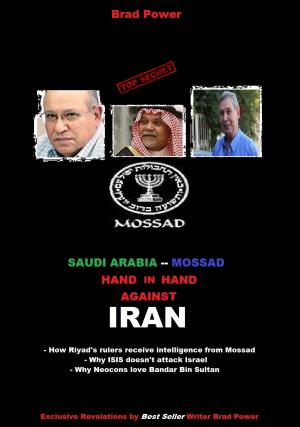| Author: | Brad Power | ISBN: | 1230000615853 |
| Publisher: | Brad Power | Publication: | August 19, 2015 |
| Imprint: | Language: | English |
| Author: | Brad Power |
| ISBN: | 1230000615853 |
| Publisher: | Brad Power |
| Publication: | August 19, 2015 |
| Imprint: | |
| Language: | English |
Beginning in the 1950s and peaking in the 1980s, a number of developments greatly advanced Turkey's modernization. These same events also transformed Turkish politics. The result was a confrontation between provincial/traditional and urban/modern cultures, new social classes, and the fragmentation of the conservative electorate from the 1970s onward. This same situation provided the environment for the growth of Islamist parties in Turkey taking votes away from their center-right competitors.
Islamist political movements vary greatly among different states in their doctrines and strategies. Turkey's groups have their own distinctive history. In Turkey, the Islamist movement emerged soon after the founding of the secular republic in 1923. It was led by tarikat (religious order) sheikhs and professional men of religion, who lost their status and economic power when secular reforms abolished religious institutions. Trying to stage revolts against the secular state in the 1920s and 1930s, it failed to gain wide support and was crushed by the authorities. In general, though, Islamist groups stayed underground during the era of one-party rule, between 1923 and 1946.
Beginning in the 1950s and peaking in the 1980s, a number of developments greatly advanced Turkey's modernization. These same events also transformed Turkish politics. The result was a confrontation between provincial/traditional and urban/modern cultures, new social classes, and the fragmentation of the conservative electorate from the 1970s onward. This same situation provided the environment for the growth of Islamist parties in Turkey taking votes away from their center-right competitors.
Islamist political movements vary greatly among different states in their doctrines and strategies. Turkey's groups have their own distinctive history. In Turkey, the Islamist movement emerged soon after the founding of the secular republic in 1923. It was led by tarikat (religious order) sheikhs and professional men of religion, who lost their status and economic power when secular reforms abolished religious institutions. Trying to stage revolts against the secular state in the 1920s and 1930s, it failed to gain wide support and was crushed by the authorities. In general, though, Islamist groups stayed underground during the era of one-party rule, between 1923 and 1946.















